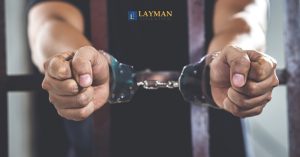Introduction
Government and state laws oversee the foundation and organization of detainment facilities just as the freedoms of the prisoners. Despite the fact that detainees don’t have full sacred freedoms; they are ensured by the Eighth Amendment’s preclusion against barbarous and strange discipline. This assurance likewise necessitates that detainees be managed at the cost of a base way of life. For instance, in Brown v. Plata, the Supreme Court maintained a court-ordered populace breaking point to check overpopulation which disregarded the Eighth Amendment in California penitentiaries.
In any case, detainees hold some sacred freedoms, for example; fair treatment in their right to authoritative requests and a right of admittance to the parole interaction. Also, the Equal Protection Clause of the Fourteenth Amendment applies to jail detainees. Ensuring them against inconsistent treatment based on race, sex, and doctrine. The Model Sentencing and Corrections Act, made by the Uniform Law Commission in 1978, gives that a restricted individual has a shielded interest in independence from separation based on race, religion, public beginning, or sex. Detainees additionally have privileges to discourse and religion, to the degree, these freedoms don’t meddle with their status as prisoners.[1]
Classification:
State detainees reserve no options for specific characterizations under state law. “Grouping,” as it is utilized here, depicts the custodial characterization of a detainee whenever he is indicted, for example, greatest v. least security, isolation, and so forth Courts are incredibly hesitant to restrict the watchfulness of state jail authorities to group detainees. Government jail authorities have full caution to control detainee grouping as influencing states of constrainment, in truth by Congress. For the most part, the Federal Bureau of Prisons controls government groupings.
Americans with Disabilities Act
In 1998, the Supreme Court administered in Pennsylvania DOC v. Yeskey that the Americans with Disabilities Act (ADA) “gives no premise to recognizing these projects, administrations, and exercises from those given by open substances that are not detainment facilities.” Thus, in light of the fact that the ADA doesn’t recognize jails from non-penitentiaries, it applies to secure detainees with incapacities, ensuring sensible facilities.
Jail Litigation
The Prison Litigation Reform Act (PLRA), sanctioned in 1996, needs, in addition to other things, that detainees exhaust authoritative cures prior to testing a state of their imprisonment in court. The Supreme Court in Jones v. Bock (2007) explained the privileges and commitments of detainees in regards to the weariness necessity.
Legal Review
Courts will in general concede to jail authorities with respect to detainees’ freedoms. Inasmuch as the conditions or level of a detainee’s restriction are inside the sentence and not in any case violative of the Constitution, the fair treatment proviso doesn’t need legal oversight. At the point when jail guidelines encroach on and prisoners’ established privileges, the courts don’t matter severe investigation. The sane premise test utilizes to decide if the encroachment might stand.
Freedoms of Inmates: Basics
Indeed, even prisoners have specific fundamental privileges secured by the U.S. Constitution. This article clarifies those privileges, including the option to liberate from “pitiless and uncommon discipline” and then some. [2]
What Prisoners Should Know about Social Security
Government-managed retirement and Supplemental Security Income (SSI) benefits by and large aren’t payable for quite a long time that you’re in prison. Find out with regards to when a previous detainee becomes qualified for benefits and that’s just the beginning.
Social liberties of Institutionalized Persons
The Civil Rights of Institutionalized Persons Act (CRIPA) shields detainees from misuse, ill-suited jail conditions, and that’s just the beginning. Find out with regards to the kinds of foundations that should follow CRIPA and the issues covered.
Detainee Rights and Resources
A rundown of assets on adjustments and detainees’ freedoms. You’ll discover connections to various detainee freedoms associations, including the Prison Activist Resource Center, the ACLU, and that’s just the beginning.
Your Rights in the Criminal Justice System
An assortment of articles and assets on criminal freedoms. This part offers an abundance of assets on criminal freedoms, including search and seizure securities, Miranda privileges, the option to guide, and your privileges during the preliminary stage
Conclusion:
One of the establishing occupants of the overseeing reasoning of the United States is every individual, U.S. resident or not, is enriched with specific privileges which can never be detracted from them. This stretches out even to individuals who have perpetrated violations sufficiently genuine to warrant a jail sentence (or impermanent confinement, like a holding cell). Thus, various legitimate insurances are accessible to jail prisoners. Regardless of whether those assurances don’t however solid as those for individuals who may be not sentenced criminals.[3]
[1] https://www.law.cornell.edu/wex/prisoners%27_rights#:~:text=Although%20prisoners%20do%20not%20have,a%20minimum%20standard%20of%20living.
[2] https://www.aclu.org/issues/prisoners-rights
[3] https://www.findlaw.com/civilrights/other-constitutional-rights/prisoners-rights.html














